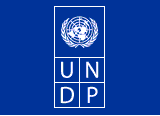|
Sustainable tourism and its contribution to poverty alleviation
Presented by the World Tourism Organization (WTO)
At this event, the publication "Tourism and poverty alleviation" was presented, and experiences and potentials of sustainable tourism were discussed.
Francesco Frangialli, Secretary General of the WTO, noted the significant growth of the tourist industry in recent decades, and advocated tourism as a part of countries' poverty alleviation strategies. He underscored tourism as a means to reducing countries' debt and dependence on raw material exports, and called for planned and sustainable tourism.
Dawid de Villiers, WTO, stated that tourism can make a substantial contribution to poverty alleviation and noted the potential for tourism development in less developed countries and rural areas. He highlighted the tourism sector's contribution to: income-generation in many developing countries; restoration of world heritage sites; and job creation.
Geoffrey Lipman, WTO, introduced the Sustainable Tourism - Eliminating Poverty (ST-EP) initiative, and noted its components:
an international foundation to attract financing for tourism projects; a research base to identify principles and model applications; and an operating framework, which promotes good practices among companies, consumers and communities.
Rubens Ricupero, Secretary General of the United Nations Conference on Trade and Environment, stressed sustainable tourism as an important tool for environmental protection and employment generation. He stated that many countries fail to recognize the potential of tourism for economic development, and underscored tourism's catalytic role for the development of the service sector. Ricupero highlighted increased tourism as a positive result of globalization.
Taleb Rifai, Jordanian Minister of Tourism and Antiquities, stated that promotion of tourism requires governments to: invest in infrastructure; develop tourism sites; and forge public-private partnerships. Rifai noted that the tourism sector is vulnerable to crises, and advocated the adoption of "safety nets."
Sereyvuth Veng, Cambodian Minister of Tourism, noted the importance of country stability to tourism development. He underscored tourism as a catalyst for developing infrastructure and providing electricity in rural areas, and highlighted the critical role of governments in promoting tourism development.
Nandcoomar Bodha, Mauritian Minister of Tourism, emphasized the importance of positive interactions between tourists and local communities, underscored social responsibility of the tourism industry, and called for community involvement.
|















